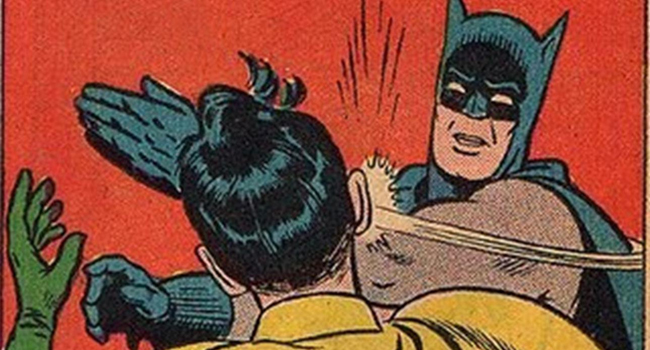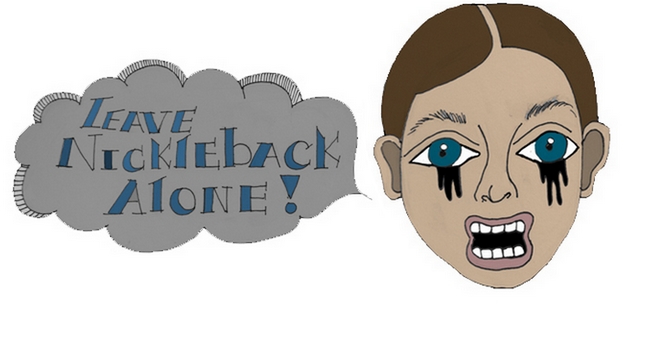“People today are still living off the table scraps of the [19]60s. They are still being passed around—the music and the ideas.” –Bob Dylan
Culture is formed by art, and artists, as a culture, have always used past art as inspiration. But when does using inspiration become replication?
Recently, the pop culture of the 21st century was put under the microscope, and people have begun debating whether today’s musicians are building upon the sounds of their inspirers or whether today’s music has simply stopped progressing.
In May, Simon Reynolds released his book Retromania: Pop Culture’s Addiction to Its Own Past. In it, Reynolds submits that the pop culture—specifically its music—of the 2000s to present has had no real push forward and that music may even be experiencing a “creative plateau.” (He also points to film, television and fashion as proof that the current culture is obsessed with recycling the past).
This attitude has ruffled some fans’ feathers, but one would be hard-pressed to deny Reynolds’ argument fully. It seems to be a fact that for every Animal Collective pushing boundaries, there are a dozen Fleet Foxes rehashing the past verbatim, and there really is no response from progressive music to compare to the clout of Lady Gaga—a near carbon-copy of Madonna.
And it’s not just the critics who are noticing. Carrie Brownstein of Sleater-Kinney released “Entertain” in 2005 as a call-to-action, a protest to what she saw as rock’s dormancy. And in 2007, Sufjan Stevens was quoted saying, “Rock ‘n’ roll is a museum piece. There are great rock bands today. I love The White Stripes; I love The Raconteurs. But they’re just reenacting an old sentiment. They’re channeling the ghosts of that era: The Who, punk rock, the Sex Pistols, whatever. It’s been done.”
So is musical ingenuity petering out?
While bands such as Vampire Weekend expound upon the sounds of surf-rock (i.e. progress), other bands such as Band of Horses, Avett Brothers and The Black Keys seem to be repackaging the old and reselling it as new. The argument could be made, however, that if it’s new or old, what difference does it make? What sounds good is good and that is all we, as a culture, need.
We sometimes forget from being lambasted with saccharine-filled pop and great nostalgia-bands that music is an art form that, in order to fulfill its role as an art form, needs to evolve. It could be said that stagnation in an art form during a certain period is a reflection of the stagnation of the minds of that era.
Or at least, that’s what’s at risk.
And sonically, it does seem space is becoming limited. With the abundance of music being made today in conjunction with the lack of an advent of any revolutionary instruments to forge new ground, musicians are building much of today’s new music with the same tools musicians used 50 years ago, and range and nuance are quickly drying up.
And so is the presence of music’s classic motivators.
The blues and country were born from strife, as was rap. Rock and folk were cradled and raised by protest. Disco, grunge and rave music were fueled by drugs. And much of the other music from the 1980s, 1990s, and 2000s was driven by money.
Today, America isn’t facing any major defining cultural shift. No new drugs have hit the scene. And the pursuit of money is seen as selling-out. So where’s the motivation in America?
With all of this in mind, it appears Reynolds might be correct. It does appear as though so much of today’s pop culture has been consumed with looking back that we’ve forgotten to move forward, but that seems to be describing only a portion of today’s music.
One could accuse Reynolds of only skimming the surface and ignoring the fact that music’s progression may no longer be primarily exposed through pop culture and, instead, found dwelling in “underground” music, off the charts and the beaten path.
Many sub-genres and lesser-known bands are pushing music forward but without a large audience to propel the surge. Because of this, these bands are likely to fizzle out and be forgotten—through no fault of their own.
Music is a consumer-driven art. Underground bands that have the direction and the desire to push forward are likely to never be heard—or heard enough to leave an impression—which could be a large factor into the perceived stagnation. One can’t blame music for what it is that people like. One could even go as far as to say music is evolving but its fans are not.
At the same time, music’s perceived inability to progress could also be the listening population’s inability to perceive progression before the music of today can be put into a historical context. One could pose that the progress this generation has made musically will remain imperceptible until enough time has passed and we are allowed to look back and reflect.
A great way to monitor the influence of musical ingenuity of the 2000s is to reflect on the strides that late ’90s rock-juggernaut Radiohead has taken over the past decade. Evolving from OK Computer to In Rainbows without a doubt shows forward-thinking and growth, even if In Rainbows arguably has ties to ’90s post-rock.
But therein lies another artifact of today’s pop culture. All music has exposed roots, but because bands today are said to be building within the preexisting genre of, say, math-rock, doesn’t necessarily mean that those bands aren’t evolving. The line may not be clear, but that is also a limitation of labeling bands with genres.
Reynolds is, at the very least, partially correct. The pop culture of the 2000s is, for whatever reason, stuck in a time warp. But saying that this culture’s desire to recapture some of what made previous decades great is a detriment to the growth of current pop culture seems like a bit of an overreaction. What we see in today’s culture is the result of many convoluted factors careening into one another, and it is as unique and different as the culture of any other generation.



